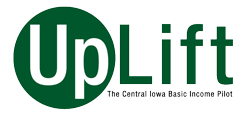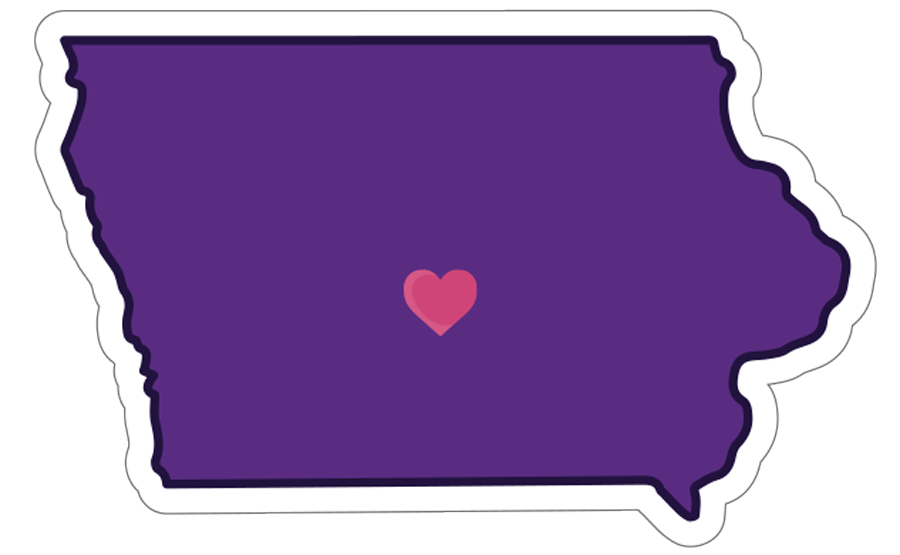What if you were a member of a low-income family that suddenly began receiving $500 a month, no strings attached? Would you use the money to cover grocery expenses, childcare and other basic needs, and would doing so benefit your family’s physical and mental well-being?
Answering these questions is the essence of a new pilot program, Uplift – The Central Iowa Basic Income Pilot, the state’s first basic income program. This spring, 110 Central Iowans in rural, suburban and urban areas were randomly selected from more than 6,000 applicants to receive $500 monthly unrestricted payments. To qualify, applicants had to earn less than 60% of the median income for the area, or up to $59,190 annually for a family of four. They also must reside in Polk, Dallas or Warren counties and live with at least one dependent up to age 25.

An additional 140 Central Iowans serve as a control group for the 24-month pilot, which is housed in the Tom and Ruth Harkin Institute for Public Policy and Citizen Engagement in Des Moines. “Through the pilot, we’ll look at the needs participants are able to meet with the payments and factors like their employment status, financial wellness and health,” says Ashley Ezzio, M.P.H.'23, senior project coordinator at the Harkin Institute. “The Central Iowa pilot also will include survey questions on school absenteeism and school readiness, so we can assess the impact on child welfare.”
“Exploring basic income in Iowa is the first step toward informing sustainable solutions for financial stability in our community.”
Ashley Ezzio, M.P.H.’23, Uplift Senior Project Coordinator
The pilot is a collaboration among numerous funding organizations, community partners and institutions, including DMU. Rachel Reimer, Ph.D., chair of DMU’s M.P.H. program, and Jeneane McDonald, M.P.H., program vice chair, are leading data collection efforts, contracted through the Center for Guaranteed Income Research at the University of Pennsylvania.
“In our public health classes, we talk a lot about factors that influence health and outcomes, and poverty is a consistent co-variant. We know that individuals who live in poverty tend to have lower rates of good health and more incidents of disease. It isn’t a new idea,” Reimer says. “Causal associations exist between experiences of childhood poverty and more negative childhood, adolescent and early adult outcomes, including cognitive, educational and developmental delays.”
To get the word out to potential pilot applicants, Ezzio and her colleague, Michael Berger, M.P.H., worked with more than 50 community organizations that exist in or serve underserved communities. They gave dozens of presentations and distributed information in 10 languages. They also advocated for the concept of providing a guaranteed basic income to people with demonstrated need.
“Some people don’t like that narrative, but giving people cash lets them make decisions,” Ezzio says.

An Uplifting Pilot
110 Central Iowa households were randomly selected to receive a $500 monthly basic income, beginning in May 2023, for two years as part of a community study on whether and how unrestricted cash can reduce poverty and impact health and well-being.
$500
per month

Rachel Reimer, Ph.D., chair of DMU’s M.P.H. program, and Jeneane McDonald, M.P.H., program vice chair, are leading data collection efforts.
Who Are the Participants?
Criteria to Participate
Interest and Participation by County
In addition to a monthly payment, participants are offered benefits counseling on how the money will affect their income and any existing benefits.
24
months

